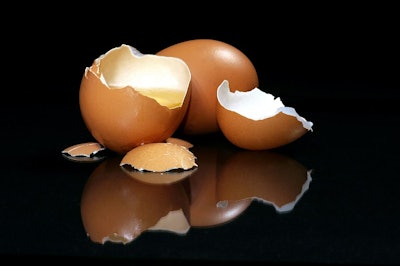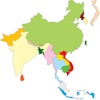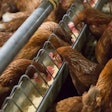
Rising costs due to the Ukrainian war and avian influenza have put the Republic of Ireland’s egg producers under significant pressure.
The mounting costs have led to the possibility of few to no eggs on grocery store shelves in the near future, as farmers will not be able to afford bird placements and cannot get additional bank credit to do so, explained Irish Farmer’s Association (IFA) Poultry Chairman Nigel Sweetnam.
To address the issue, the IFA is campaigning to help egg farmers lessen their debts, negotiating with the government and protesting outside grocery stores. Additionally, Sweetnam has requested that retailers give back two Euro cents per egg to producers to help alleviate non-feed related farm costs.
“An increase in price to cover the cost of feed has been received by most egg producers. However, other costs apart from feed have not been covered. We need immediate action to ensure the survival of our egg sector,” Sweetnam said. “Farmers want to continue supplying quality eggs and chicken to Irish consumers, but this is looking highly unlikely unless their costs are recovered.”
The Vice Chair of the IFA Poultry Committee Brendan Soden added, “The money which egg producers have been campaigning for, along with chicken producers and pig farmers, is not to boost farmers’ profits. It is to recover their spiraling costs; to pay feed mills; to pay for pullets; and the massive increase in energy costs.”
According to a survey performed by the IFA, 80% of Irish producers indicated they would not recommend future generations to continue in egg production due to the significant cost increases in their non-feed costs such as electricity, labor, fuel, litter disposal and bedding.
“Farmers acknowledge that most supermarkets have listened to their concerns and have passed back increases to their suppliers, which in turn should be passed onto farmers. However, this has not happened,” Soden said.



















